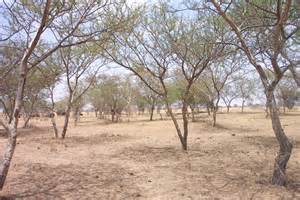
President Goodluck Jonathan, today, in Bachaka, Kebbi state, flagged–Off the Great Green Wall that passes through eleven countries, including Nigeria. The Great Green Wall was endorsed in 2007 by the African Union for the Sahara and the Sahel Initiative with the objective of tackling the detrimental social, economic and environmental impacts of land degradation and desertification in this part of our continent.
The African Union, through its New Partnership for Africa’s Development (NEPAD), the Programme is conceived as a 15 km wide strip of greenery (of trees and bushes) of some 7,775 km long, from Senegal, in the west to Djibouti in the Horn of Africa in the east.
Flagging-off the programme, President Jonathan said that this biological corridor along the southern border of the Sahara is a panacea of halting the movement of the Sahara desert southward, protecting water sources and restoring habitats for biodiversity, energy resources and agricultural production.
“It is important to note that the Regional Afforestation Project, the Great Green Wall Sahara Project has taken off in some member countries notably Senegal, Chad and Niger.
“To this end, a Great Green Wall of about 1,500km-long (East-West) and 2km-wide (North-South), using both economic and forest tree species to be based on community-driven, integrated rural development approach was agreed for the Nigeria segment. The idea is that the project will principally check the advancement of desertification and erosion as well as restore eco-balance even as it creates sustainable jobs for thousands of our youths who are without jobs.
“The initiative, undoubtedly presents us a great opportunity to advance our vision of a green pathway for human development, and address new and emerging environmental challenges in our country.”
Jonathan noted that desertification is one of the greatest environmental and developmental problems of the 21st century, saying that this ecological problem can trigger a vicious circle of environmental degradation, impoverishment, forced migration and conflicts, often threatening the political stability of affected countries and regions.
He said that waging an effective fight against the spread of desertification is one of the greatest challenges in development politics today.
“In Nigeria, the worst environmental changes brought about by desertification mostly occur in eleven frontline States of Adamawa, Borno, Bauchi, Gombe, Kano, Katsina, Kebbi, Jigawa, Sokoto, Yobe and Zamfara.
“However, the impacts of this invidious phenomenon are not only visible within these States but gradually creeping into other States of the Federation, and with the potential to weaken our socio-economic development efforts and engender other challenges.
“The Great Green Wall Programme is an expression of our commitment for enhanced environmental management, and thus overcome the problems of desertification. It is a strategy adapted by African leaders supported by the international community and development partners, to fast track the attainment of the Millennium Development Goals (MDGs), roll back poverty and address the specific risks and vulnerabilities in our dry lands.
“Our desire to enhance the economic transformation of our great nation, and improve the livelihoods of the citizenry requires that we address the risks and vulnerabilities in the drought and desertification affected States. This is what we intend to achieve by coming together to implement this programme.”
The President acknowledged that the challenges ahead in the dry-lands are daunting, but that it is their duty and responsibility as Government to make a difference in the well-being of the people. “Our belief is that the Great Green Wall Programme will assist us in combating desertification, and land degradation. And ultimately it will be a vehicle in our determination to eliminate poverty, and create wealth for our people.
“The project will also help reduce unemployment and rehabilitate over 2 million hectares of degraded land and improve agricultural productivity.
“On a global scale, our component of the GGW programme will serve as a launching pad for achieving Zero Net Land Degradation target as agreed by World Leaders at the last Rio+20 Conference in Brazil.” [myad]